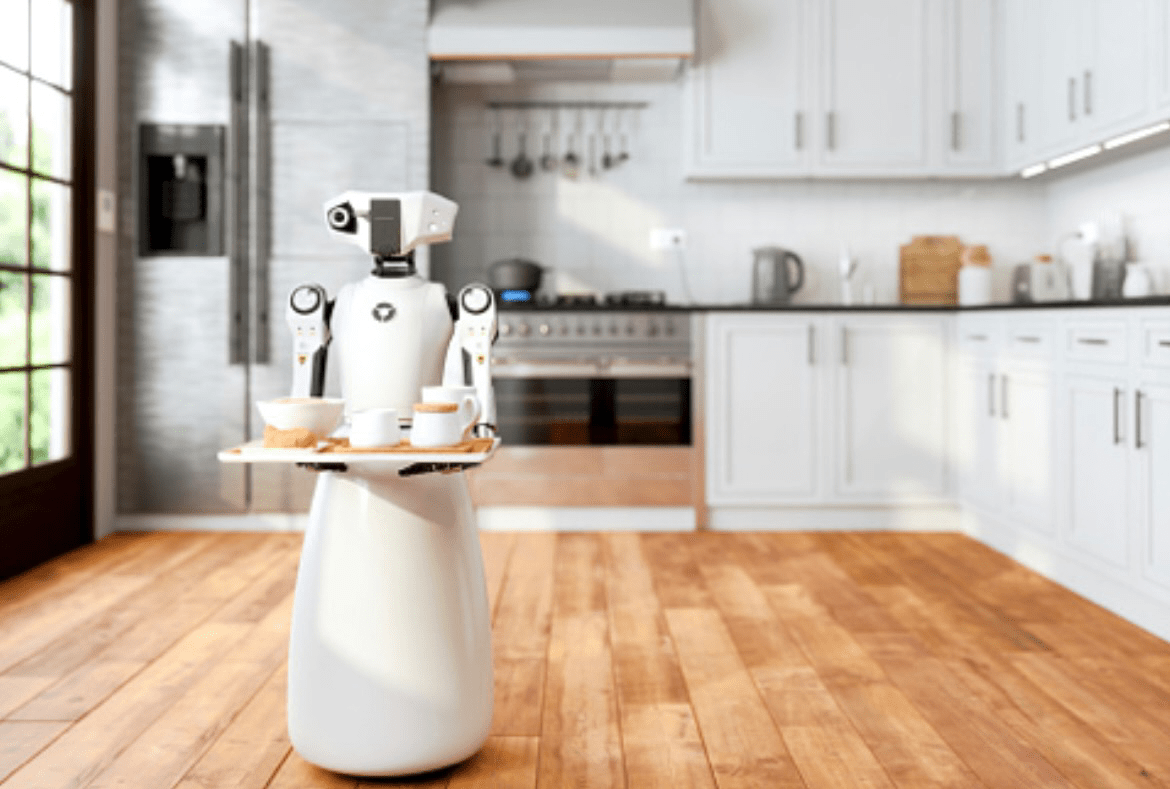B2 listening about robots
لیسنینگ سطح پیشرفته درباره ی آینده ی ربات ها

You will hear an interview with a robot scientist.
For questions 1-7, choose the best answer (A, B or C).

K: I can't really tell you that, I'm afraid. It's not that I don't want to, it's just that we've all been given our instructions and signed an agreement not to give anything away until it actually comes onto the market. I don't quite know when that will be, but probably sometime early next year.
P: OK, well we'll look forward to that. In the meantime, perhaps you could tell us what you think are the most important applications of robots in our lives. Why are they useful?
K: Well, they help us to do what we call 'the 3 Ds', That's any- thing which is dull, dirty or dangerous. They can be used in the home or in the car manufacturing industry, to do dull or monotonous work; they're used for doing dirty jobs like mining or cleaning toxic waste; and then they have applications in the military or in the dangerous business of space travel. Of course, that's not an exhaustive list, but it gives you an idea of the range of different uses they have - and also of the variety involved in my line of work.
P: Yes, indeed. Let's talk if we may about one area in particular, though, the more humanoid robots, the ones with a recognizable human form. What are the latest developments there?
K: Yes, the ones being built now are able to see, hear, touch and even smell and taste. In the future they should also be able to display a range of emotions. They might feel happy for example that they have carried out a domestic task particularly well, or sad and guilty because they haven't. That way they will have a reason to go on doing the same task in the future, either to match their last performance or to improve on it. A robot with emotions is a robot with goals.
P: Amazing. But isn't all this a little bit worrying- robots with emotions? Isn't there a danger of science fiction becoming science fact, with robots taking over?
K: Yes, unfortunately, robots do get rather a bad press sometimes, don't they? Particularly in films and video games where they're either objects of humor and ridicule which we laugh at or else they're menacing characters which threaten to destroy the whole human race. But no, there is actually an ethical code which sets out what we can and can't do in robot design - and one thing we won't do is allow ourselves to lose control over our creations.
P: Don't you think, though, that robots will make us lazy, that we'll no longer want to do anything that requires any effort?
K: I think the car's already done that to us. It's made us physically very lazy. We don't walk so much as we used to and our bodies have suffered as a result. I think robots could well have the same effect on our brains. If we let intelligent robots do all of our thinking for us, there is a danger we won't be able to make any of our own decisions, that we’ll become mentally lazy. And that, I think, is just worrying.
P: Do you really think that the day will come when most homes have their own robot?
K: If you think back to just twenty-five years ago, few of us then would have predicted that we'd soon have a personal computer in our home, be logging onto the internet and downloading hundreds of songs onto a thing called an MP3 player. So why shouldn't we all have robots? The truth is that we've been talking about robots for nearly a century and their development hasn't been quite as fast as we thought it would be, but now with advanced computer technology available, that should all change very soon.
P: How soon?
K: Well, it's changing already. The first humanoid robots at the end of the 1990s could do very little, then later models learnt to sit down and stand up, then talk, walk around, dance and so on. It's rather like watching a child grow. Through television and other media, the public is slowly growing accustomed to the idea of robots as a reality, and when they eventually become widely available, people will be ready for them.
P: Thank you, Keith. he’s been fascinating having you on the program
1 What does Keith say about his company's latest project?
2 How does Keith describe his work?
3 One reason for equipping robots with emotions is
4 What does Keith say about robots in films?
5 Keith expresses concern that robots might cause us
6 Keith says that progress in the robotics industry
7 What does Keith say about humanoid robots?
برای دسترسی به دروس بیشتر به لینک زیر مراجعه کنید.
لغات زبان انگلیسی به تفکیک موضوع
درک مطلب از سطح مبتدی تا پیشرفته
تمامی موضوعات آیلتس اسپیکینگ پارت یک، دو و سه همراه با جواب


